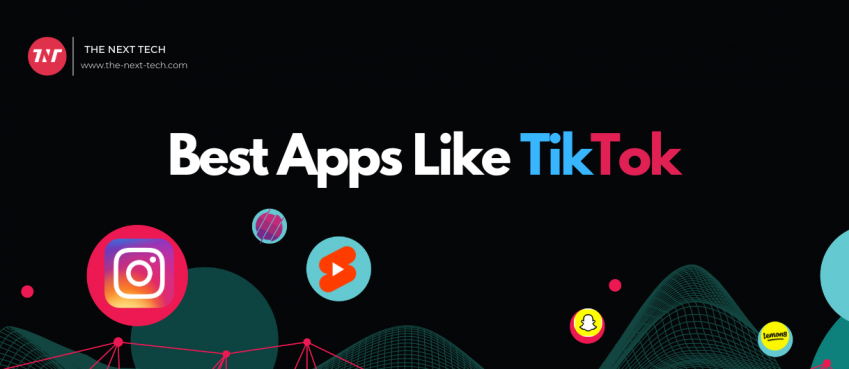
We’ve all heard the proverb about teaching a man to fish, but what if we also gave him an awesome fishing rod? Modern technology, and apps in particular allow us to achieve amazing things with our business, and one area that is a top priority for all is employee training.
Digital training apps make past-decade approaches to training (e.g. reading manuals, listening to lectures) look like fishing with a thread tied to a bamboo stick.
It’s time to upgrade.
What do training apps look like?
Most of the time, a training app will be built specifically for one business or profession, and feature functionality and information intended to boost professional skills and knowledge. In other words, it replaces or adds to physical training and learning on the job. These apps can be built for different platforms like:
Mobile:
the most accessible format for such applications. Everyone has a mobile phone, and can complete their training from any location.
Desktop:
probably the most common format, being used since computers became indispensable in business. While such solutions are not as versatile as mobile, these apps are not limited to the restrictions of iOS/Android app stores.
xR:
stands for extended reality. This format includes AR, VR, and MR. Augmented reality apps traditionally use a smartphone camera to capture real-life settings and objects, juxtapose them with digital elements. VR and MR are much more immersive and place the user in a curated digital world when they wear headsets (e.g. Hololens, Oculus, Vive).
How training apps are being used today
Some companies are loath to disclose details about their inner workings and software, but there are still plenty of brands and industries which have gone public over how training apps have benefitted them. Let’s go over a few examples:
1. Healthcare
With the help of a mobile app, Dis-Chem (a large chain of pharmacies in South Africa) is boosting the competency of pharmacy staff in multiple countries. This app was built to limit face-to-face interactions, and helps staff better remember and be knowledgeable about the products sold at their location. Just by letting pharmacists work with the app for an hour a day, the company has boosted engagement by 90% and quickly improved the skills of over employees.
2. Retail
Burgerfi is an American restaurant chain with over 120 locations and 3,000 employees. To improve safety and limit contacts during the pandemic, they released an app (YOOBIC) for restaurant operators to provide a higher level of service. The lessons are made available to workers in game-like format and quizzes.
As a result of releasing the mobile app, Burgerfi has noted that operators can now better track employee engagement and progress, which makes it easier for them to plan further training and business operations more efficiently.
3. Oil & Gas
Oil Platform Simulator is an application built by Program-Ace and designed for use by new and existing oil rig workers. It fully simulates a working oil rig, so workers can explore and learn how the machinery works before ever stepping foot on the platform. Over 500 workers were trained with this app, and it also lowered the frequency of accidents aboard the platform by 43%.
4. Agriculture
Due to pandemic-related restrictions, the farming industry of New Zealand is suffering greatly, but the company Hanzon Jobs came up with a crafty solution. They developed the My Hanzon app, which is intended to get more people working in the industry.
With it, not only do new farmers gain a tool for sustained professional growth, but they are also able to better track yields and maximize profit. For example, by making smart decisions about cutting baleage, the need to throw away crops and lose money can be eliminated.
5. Transportation
To address a shortage of truck drivers, a Florida-based company created a free app that helps potential drivers prepare for their professional exam. It features plenty of helpful instructions, 3D models and visuals, as well as numerous interactive options that give users all the helpful information they need to pass their CDL exam and start driving.
This approach is sure to attract a greater number of test applicants and increase the likelihood of their success. It also delivers a safe learning experience without face-to-face contact.
Training apps are here to stay
All of these examples are a stark contrast to the training methods of old. Books, manuals, coaching, and hands-on work can all be transformed digitally into a convenient learning experience accessible on a handheld phone (or other devices).
Even in businesses where hands-on training is essential, apps can reduce risk and present a basic impression of what a potential worker can expect.
Training apps are not a temporary trend, and should be viewed as an essential instrument for any business. To begin future-proofing their business, leaders just need to figure out which business goals their application will fulfill, find a reliable virtual training company, and put their resources into this endeavor.
Your employees will appreciate it, and the boost to the safety and productivity of your company will put a smile on your face as well.
Top 10 News
-
01
[10 BEST] AI Influencer Generator Apps Trending Right Now
Monday March 17, 2025
-
02
The 10 Best Companies Providing Electric Fencing For Busines...
Tuesday March 11, 2025
-
03
Top 10 Social Security Fairness Act Benefits In 2025
Wednesday March 5, 2025
-
04
Top 10 AI Infrastructure Companies In The World
Tuesday February 11, 2025
-
05
What Are Top 10 Blood Thinners To Minimize Heart Disease?
Wednesday January 22, 2025
-
06
10 Top-Rated AI Hugging Video Generator (Turn Images Into Ki...
Monday December 23, 2024
-
07
10 Top-Rated Face Swap AI Tools (Swap Photo & Video Ins...
Friday December 20, 2024
-
08
10 Exciting iPhone 16 Features You Can Try Right Now
Tuesday November 19, 2024
-
09
10 Best Anatomy Apps For Physiologist Beginners
Tuesday November 12, 2024
-
10
Top 10 Websites And Apps Like Thumbtack
Tuesday November 5, 2024







